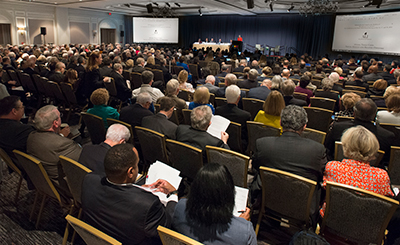This book is divided into three parts. The first part concerns the rules for “non-precinct voting”—the casting of ballots by means other than the traditional polling place on election day. Voting before the election day, either by mail or at locations of early in-person voting, has become an important part of our electoral landscape.
The second part concerns general principles for the resolution of disputed elections and is applicable to both presidential and nonpresidential elections. Disputed elections have played a large role in our national consciousness over the last two decades, mostly as a result of the 2000 presidential election but also because of high-profile senatorial and gubernatorial elections.
The third part concerns presidential election disputes specifically and establishes procedures to complete the resolution of a disputed presidential election within the unique and challenging time constraints established by Congress. Presidential elections present distinct issues for a number of reasons, including the importance of what is at stake, the very compressed five-week period that Congress provided for the task, and the potential legal risks of not having procedures in place when the dispute arises.
Reporters
Edward B. Foley
Reporter, Principles of the Law, Election Administration
Edward Foley (known as “Ned”) holds the Ebersold Chair in Constitutional Law at The Ohio State University, where he directs its election law program. Foley is the author of Ballot Battles: The History of Disputed Elections in the United States (Oxford University Press, revised edition 2024), the first edition of which was Finalist for the Langum Prize in American Legal History, and Presidential Elections and Majority Rule (Oxford University Press, 2020). He is also co-author of Electoral Reform in the United States: Proposals for Combating Polarization and Extremism (forthcoming 2025), Election Law and Litigation: The Judicial Regulation of Politics (2nd ed. 2022), and From Registration to Recounts: The Election Ecosystems of Five Midwestern States (2007; updated 2011).
Steven F. Huefner
Associate Reporter, Principles of the Law, Election Administration
Steven F. Huefner is director of Clinical Programs at Moritz, as well as director of the Legislation Clinic. He teaches Legislation, Jurisprudence, and Legal Writing. Before joining The Ohio State University Moritz College of Law faculty, Professor Huefner practiced law for five years in the Office of Senate Legal Counsel, U.S. Senate, and for two years in private practice at the law firm of Covington & Burling in Washington, D.C. He also clerked for Judge David S. Tatel of the U.S. Court of Appeals for the District of Columbia Circuit and for Justice Christine M. Durham of the Supreme Court of Utah. Professor Huefner was a Harlan Fiske Stone Scholar at Columbia Law School, where he served as head articles editor for the Columbia Law Review.
The ALI Adviser is intended to inform readers about the legal topics and issues examined in many of ALI’s current projects; posts do not necessarily represent the position of the Institute taken in those projects. Posts on The ALI Adviser are written by ALI project participants, ALI members, and outside sources. Completed work is available to purchase online.

